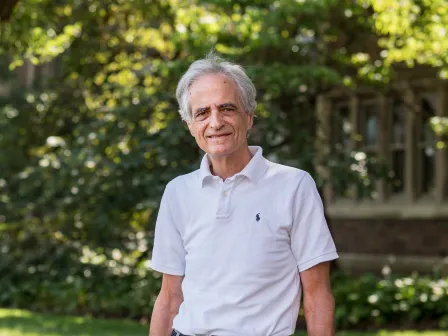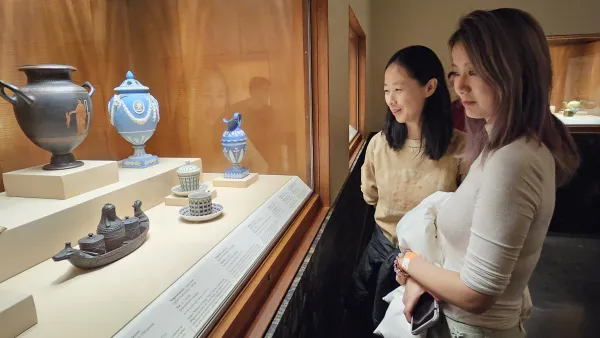Marvin Marcus, professor of Japanese literature and comparative literature, took over as chair of EALC this fall.

I’d like to share some thoughts as I embark on my stint as chair of East Asian Languages and Cultures. In the wake of Bob Hegel’s retirement, I find myself the longest-lived member of our departmental faculty — both in terms of age and years of service. Yet here I am a newly-appointed chair, with a relatively steep learning curve. My colleagues and I are deeply indebted to Rebecca Copeland, whose six years at the departmental helm have contributed to the soundness and integrity of EALC and its many programs and activities.
My view of things, which is conditioned by thirty-five years of experience teaching Japanese literature and working with many colleagues and students, embraces a number of areas and concerns. The world has changed in the interim, and so has the East Asian region and its relationship with the U.S. The geopolitical significance of East Asia goes without saying, and the need for a broad and informed understanding of the societies, languages, and cultures of China, Taiwan, Japan, and Korea is of the essence. In short, we bear a weighty responsibility.
WashU has changed as well. In fact, we have just inaugurated our new chancellor, Andrew Martin. We are on the move, and what lies ahead will challenge us all. As for our department — first and foremost, I want to acknowledge my faculty colleagues, who are its lifeblood. What I seek to accomplish, perhaps above all else, is to encourage my colleagues to expand their horizons as scholars and teachers by supporting their initiatives to the extent possible, and to promote a spirit of sharing and congeniality. Our faculty represent a range of disciplines related to the civilizations and cultures of East Asia. These span classical and modern literary study, language pedagogy, religious and spiritual traditions, social history, and the newer disciplines of popular culture and media studies. We cannot, of course, cover all possible avenues of study, but there is much that we can impart to our students and share with one another. Ours is an intellectual community, and as such I will do my best to promote a sense of equal partnership in our shared mission of researching and teaching about East Asia. In this effort, we are part of a larger faculty cohort associated with the East Asian Studies program, directed by Steve Miles. All of us are committed to ensuring that our students are effectively and broadly educated, and that we, as scholars and teachers, continue to grow and to contribute to the creative and principled dissemination of knowledge.
We are here to teach, and we are most fortunate to have students who want to learn— and they are exceptional learners. Our curriculum crosses the student spectrum, from first-year undergraduates to doctoral candidates, and our students come from diverse backgrounds. Some major or minor in our programs in Chinese, Japanese, and Korean. And our graduate students are enrolled in a range of masters' and doctoral programs. What is more, we offer study abroad programs for our undergraduate majors, together with internship opportunities, and our graduate students can take advantage of relevant programs and affiliations at East Asian universities and institutions.
As for our curriculum — some things ought to change, and some should be preserved. Language instruction is fundamental to our departmental mission. The study of literature has expanded into new scholarly domains — cultural studies, visual culture, pop culture, media and graphic studies, and so forth. I should also call attention to the importance of creative approaches to our engagement with East Asia — be these poetic, artistic, photographic, calligraphic, and so forth. Our creative products — and this applies to both faculty and students — should be encouraged, appreciated, and shared.
Finally, and again reflecting back on my many years here at WashU, I can only express deep gratitude for my good fortune. It has been a pleasure and a privilege to be associated with WashU, and to be blessed with colleagues, students, and staff who have been unfailingly supportive and congenial. My thanks go out to all of them.

